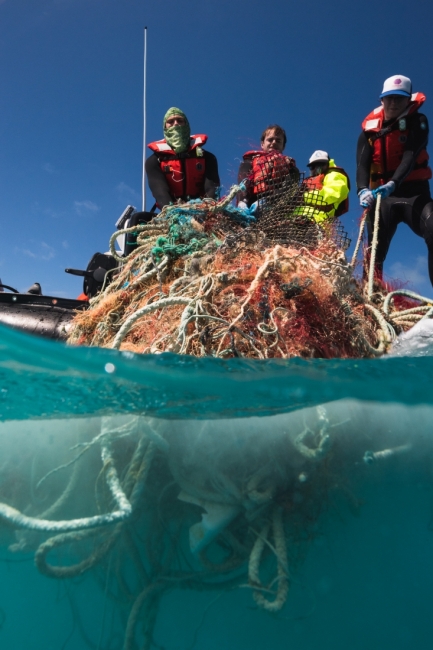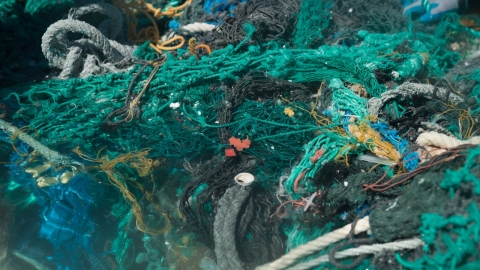We are excited to share that the United States Government formally joined the Global Ghost Gear Initiative (GGGI). Last month, the United States Department of State signed a statement of support for the GGGI pledging continued United States Government commitment to address abandoned, lost, or discarded fishing gear, also known as “ghost gear,” in the global ocean. Addressing marine debris, including ghost gear, is a key priority for the United States and its efforts will be amplified through participation in the GGGI. (Read the Department of State’s July 16 press release here.)
The Global Ghost Gear Initiative is the foremost international collaboration working to address the problem of ghost gear and has broad representation across industry, government, and civil society. GGGI conducts much needed work to measure the impacts of ghost gear and to develop, share, and document best practices for addressing it. GGGI is managed by the Washington D.C.-based non-profit organization, Ocean Conservancy.
Ghost gear is one of the main types of marine debris found in the ocean and can have serious impacts to the environment, as well as to the many industries that rely on a healthy ocean for income. When gear, such as fishing nets or traps, is lost or discarded it can continue to trap and kill fish, crustaceans, sea turtles, and seabirds for years. Ghost gear can also entangle marine mammals, such as whales and dolphins.
By becoming a member of the GGGI, the United States Government can better support this key international initiative and foster stronger collaboration between the Department of State and the NOAA Marine Debris Program to reduce ghost gear incidence. The United States is proud and excited to join 15 other governments and over 85 partners to tackle this global issue and help keep our ocean free of marine debris.



Trying to get anyone with the State Department Agency or the Bureau of Oceans and International Environmental and Scientific Affairs run by Jonathan Moore is impossible. Therefore my comment to anyone interested the solution to ghost gear and nets all make of nylon filaments and monofilaments is proper fortification of the original gear. Mfg. of these nets are not regulated fro lifetime performance and the technology is now available to make nets last 25 to 75 years outdoors! At this stage its a recycling game but front end intervention is required to slow down the level of marine litter and this can be accomplished with proper long term UV and thermal stability. However, the market is driven by mfg. that wants to sell more low fortified and expensive nets and not to increase the level of performance. This must be regulated or altered to illustrate to existing mfg. that they are no longer going to be tolerated.